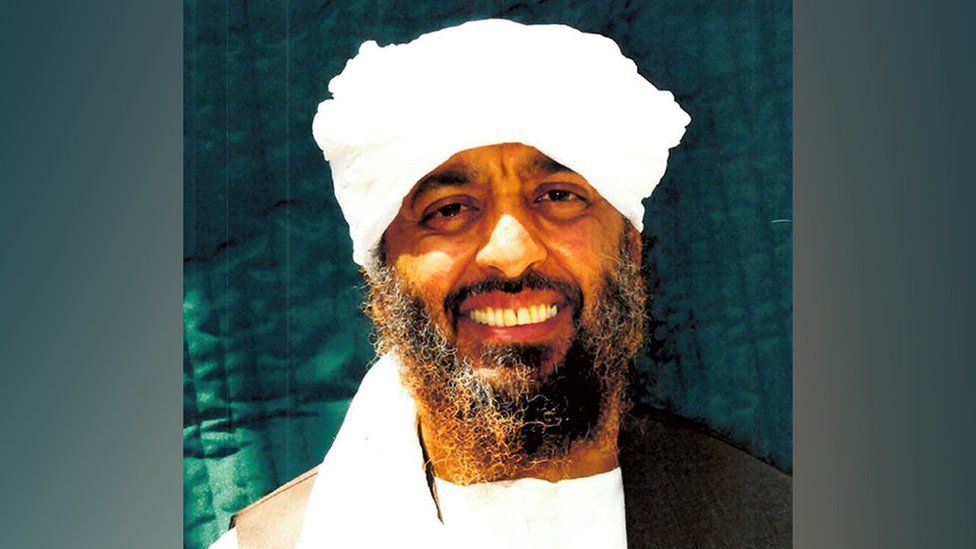
Ramzi bin al-Shibh was first transferred to Guantanamo Bay in 2006
A military judge at Guantanamo Bay has ruled one of the five defendants charged over the 9/11 attacks is not fit to stand trial in a death-penalty case.
The defendant Ramzi bin al-Shibh has been diagnosed with post-traumatic stress disorder, associated psychotic features and a delusional disorder.
His lawyer has long claimed his client was "tortured by the CIA".
Al-Shibh was scheduled to face pretrial proceedings on Friday.
Colonel Matthew McCall in the US base on the eastern tip of Cuba accepted the findings of the doctors which said in August that al-Shibh was too psychologically damaged to defend himself.
The medical board of doctors concluded al-Shibh had become delusional and psychotic, The New York Times reported.
That made him incompetent to either face trial or plead guilty, according to a report filed with his trial judge on 25 August.
According to the report, the military psychiatrists said his condition left him "unable to understand the nature of the proceedings against him or cooperate intelligently".
He was supposed be on trial on Friday with four other defendants, including Khalid Sheikh Mohammed, believed to be the mastermind of the 9/11 attacks.
Before the trial, Colonel McCall has decided to remove al-Shibh from the case. The hearing of the other four defendants is expected to proceed as scheduled.
The five men are accused of conspiring in the plane hijackings in 2001 that killed nearly 3,000 people in New York City, at the Pentagon and in Pennsylvania.
Al-Shibh, who is from Yemen and 51 years old, was arrested in Pakistan in September 2002, and transferred to Guantanamo Bay in 2006.
His lawyers said he was tortured by the CIA and "went insane as a result of what the agency called enhanced interrogation techniques, that included sleep deprivation, waterboarding and beatings".
His mental situation has been an issue since his first court appearance in 2008, according to the US media. He has disrupted some of the hearings over the years with outbursts.
Al-Shibh was accused of helping organise the al-Qaeda cell in Hamburg, Germany, that hijacked one of two passenger jets that crashed into the World Trade Centre in New York.
The Guantanamo camp, in Cuba, was established by then-President George W Bush in 2002 to house foreign terrorism suspects following the 9/11 terror attacks in New York. It is on a US Navy base.
The camp has come to symbolise some of the excesses of the the Bush administration's 'war on terror' due to interrogation methods critics say amount to torture, and detainees being held for long periods without trial.





















